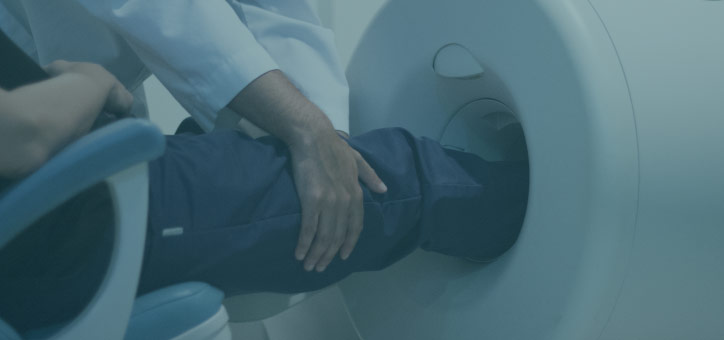Health Care & Nursing

What Does the Bible Say About Health and Wellness?
For millions of people around the world, the Bible is one of the main guiding forces in their life, as it provides direction and […]

Best Online Healthcare Administration Degrees
Hospitals, health systems, and clinics don’t run themselves. If you want to be part of this growing industry, one of the best Bachelor’s in […]

Why Will Sports Medicine Continue to be Steady in the Future?
Most people share the dream of having a career that is both fulfilling and secure. Imagine going home energized every day instead of drained, […]

How to Become a Clinical Research Physician
If you’re ready to transition from practicing traditional medical health care to a more strategic role within the medical field, becoming a clinical research […]

How to Start a Health and Wellness Center
So you think you have what it takes to start a health and wellness center? Well, with enough grit, research, and planning, you can […]

Best Online Dental Hygiene Degrees
Decide today to further your education within the oral healthcare industry by obtaining one of the 20 best online bachelor’s in dental hygiene! By […]

Best Online Master’s in Clinical Research
Take part in rapidly growing industry that saves lives on a daily basis. Earn an Online Master’s in Clinical Research. Medical research is in […]

20 Best Sports Medicine Degree Online 2022
Equally fascinated by science and sports? Interested in helping players off the field? Here are the best online sports medicine degrees. Do you want […]

How to Start a Clinical Research Site
Are you a principal investigator, or PI, and feel stuck at your job? Do you wonder where else your career in clinical research can […]

How Much Do Sports Medicine Majors Make?
Sports medicine is all about working with athletes to prevent and address injuries in order to achieve optimal performance. The field of sports medicine […]

Best Online Doctorates in Sports Medicine
Bring further study and expertise into your practice with the Best Online Doctorates in Sports Medicine. Are you seeking to make a lasting impact […]

How to Become a Clinical Research Assistant
Do you like the idea of assisting other scientists with medical research that could alter the lives of millions? Or maybe you just love […]

What Colleges Have a Good Sports Medicine Program?
Are you interested in pursuing a career in sports medicine? With a thriving job market, competitive salaries, and fulfilling job duties, this field is […]

How To Promote Health and Wellness
Health may be the most valuable thing that one can own. Yet, even for the most healthy of us out there, there is still […]

Best Online Master’s in Gerontology
If we’re lucky, we’ll all age. How well we age and the services we can access will be shaped by those with one of […]

20 Great Health and Wellness Degree Scholarships 2023
Health and wellness degrees open the door to any number of great career choices. From job opportunities in the healthcare field to food science, […]

Ultimate Guide to Sports Medicine
You’re on the sidelines of the big game. The star athlete on the team is out with an injury. Dressing their wound and getting […]

How To Become a Clinical Research Coordinator
Becoming a clinical research coordinator can be an arduous journey filled with many classes and exams. That said, after you’ve accomplished your goal of […]

What Can You Do with a Sports Medicine Degree?
There are many paths within the sports medicine field. Some of these jobs pay exceptionally well, but they require over a decade of preparation. […]

What Makes Clinical Research Ethical?
Clinical research aims to advance medical knowledge by investigating human subjects. These studies can involve a wide variety of topics, such as understanding and […]

How to Become a Sports Medicine Physician
So you think you want to become a sports medicine physician, and want to learn a little more about what it’s going to take […]

10 Best Online Master’s in Health and Wellness 2022
Catapult your education to the next level by earning an online master’s degree in health and wellness! Are you a healthcare professional who’s looking […]

How Much Do Clinical Research Associates Make?
Clinical Research Associates (CRA) are crucial components of the research teams. CRAs ensure the safety of its participants and the smooth operation of expensive […]

Most Affordable Online Sports Medicine Degrees
Combine flexibility and affordability with these top-ranked and most affordable online bachelor’s in sports medicine. Not only is it possible to complete your bachelor’s […]

Ultimate Guide to Clinical Research
We turn to doctors and other health care professionals when we are at our weakest points. We trust them to provide safe and reliable […]

Ultimate Guide to Health and Wellness
Do you have a passion for healthy living? Do you love spreading awareness and knowledge about how to live a healthy life? Or do […]

How Much Do Sports Medicine Doctors Make?
One of the most important aspects of choosing your career is deciding on the amount of money you’ll need in order to have the […]

How Much Does a Sports Medicine Physician Make?
Sports medicine physicians work with all types of people to help to prevent, diagnose, and nonsurgically treat a range of injuries. Besides orthopedic surgeons, […]

Best Online Associate’s in Sports Medicine
Mold your passion for physical activity into the beginnings of a rewarding profession with the Best Online Associate’s in Sports Medicine. Virtually everyone has […]

How To Organize a Health and Wellness Fair
Health and wellness fairs can be excellent ways for organizations and communities to educate people about complex issues such as long-term wellness. These events […]

Best Online Master’s in Healthcare Administration
It takes a doctor to save a patient, but it takes the best Master’s in Health Care Administration to run the hospital effectively. In […]

How to Become a Clinical Research Scientist
If your passion includes conducting medical research geared toward improving human or animal health, then becoming a clinical research scientist might be the perfect […]

Best Online Health Education Degrees
We can thank those with the Best Bachelor’s in Health Education for keeping us safe and healthy. What Is A Bachelor’s In Health Education? […]

How to Get a Job in Clinical Research
Do you aspire to work in a laboratory with special instruments and techniques, conducting and analyzing experimental data? Then a career in clinical research […]

Best Online Gerontology Degrees
Help people through the aging process gracefully and honorably with one of the 5 Best Online Bachelor’s in Gerontology. As baby-boomers continue to age […]

10 Best Health and Wellness Degrees Online 2022
Do you want a career where you can help empower others to live healthier lives? Are you interested in earning a health and wellness […]

Best Online Master’s in Health Services
As baby boomers require more persistent medical care in the later stages of their lives, hospitals and clinics will require professionals with the best […]

How to Become a Clinical Research Nurse
What if, when you went to work each day, your job description involved active scientific research with the goal of discovering medical breakthroughs that […]

What Is Digital Health and Wellness?
For some, digital health and wellness may sound simple and straightforward, but when you really dive deep into this subject, you’ll find that digital […]

Most Affordable Online Dental Hygiene Degrees
It’s possible to attend school without breaking the bank with one of the 10 most affordable online bachelor’s in dental hygiene. Dental hygiene is […]

Best Online Master’s in Sports Medicine
You’ve completed your undergraduate degree, and now you’re looking for something that will truly boost your professional profile and give you a competitive edge. […]

What Are the Two Career Paths for Doctors Interested in Sports Medicine?
Some of the most rewarding and longest-lasting careers in sports take place behind the scenes. Without extensive support, professional and amateur sports players couldn’t […]

What Does ALCOA Stand for in Clinical Research?
At the heart of a clinical trial is the relationship between the sponsor and the site at which the research occurs. Trust between the […]

Best Online Master’s in Dental Hygiene
Getting the education you need for a stable career is a snap with one of the best online master’s in dental hygiene programs. These […]

How To Start a Health and Wellness Business
Working for other people can limit your earning potential and lower your job satisfaction. Take control of your schedule and your working life by […]

Most Affordable Online Clinical Research Degrees
Maximize profit in your career by checking out the 25 Most Affordable Online Bachelor’s in Clinical Research. You’re working as a laboratory assistant and […]

How to Get Clinical Research Experience
We’ve all been there. You want the job, but the employer—hiring for an entry-level position—only wants candidates with experience. But how do you get […]

Most Affordable Online Health Care Administration Degrees
Prepare yourself for a variety of administrative leadership roles with an affordable online bachelor’s degree in healthcare administration. The business side of healthcare is […]

The Scientists Behind the COVID Vaccines
The COVID-19 pandemic has brought the world to its knees. But now, a series of revolutionary vaccines developed at some of the world’s leading […]

How Much Does a Clinical Research Coordinator Make?
One of the most important questions that you should ask yourself before pursuing a career is how much you’re likely to end up taking […]

How to Get Into Sports Medicine
The sports medicine field is one of the most fulfilling, stable, and lucrative sectors in the United States. And it’s growing, fast. Job boards, […]

How to Become a Sports Medicine Doctor
Sports medicine opens doors for many people. Combining science with sports, it’s an ideal career for those who are passionate about both athletics and […]

How to Become a Clinical Research Associate
With generous pay and great scheduling flexibility, becoming a clinical research associate is an excellent career for individuals who are passionate about research. Organization […]

How To Get Into Clinical Research
Getting into clinical research will allow you to get involved with research studies, some of which could lead to innovations that will profoundly improve […]

How to Start Clinical Research Business
Those who have worked in clinical research know that large salaries can be earned even not being your own boss. That said, if you […]

What Is a Clinical Research Assistant?
Want to be at the forefront of scientific research and progress? Then consider a career as a research assistant. Working in clinics, laboratories, hospitals, […]

What Does a Clinical Research Associate Do?
Clinical research associates (CRAs) perform jobs that ensure the safety of research participants. They do this by ensuring that the research is conducted according […]

Why Is Clinical Research Important?
Think of the many medical and health breakthroughs we’ve had in the past few decades. The National Institutes of Health (NIH)’s clinical center highlights […]

Most Affordable Online Health and Wellness Degrees
Make the leap toward higher education with one of the most affordable online bachelor’s in health and wellness. Do you feel inspired to inform […]

What Is a Clinical Research Coordinator?
Clinical research coordinators (CRCs) are the people that organize a research study and ensure that it’s operating smoothly. With this career, you’ll be able […]

Why Are Health and Wellness Important?
Health and wellness are aspects of our lives we often take for granted. The reason for this might be that most of us are […]

Best Online Clinical Research Degrees
Solidify your skills in laboratory science with one of the 25 Best Online Bachelor’s in Clinical Research. Whether you’ve been searching for the right […]

Best Online Public Health Degrees
Public health has never been more important. As more people are born and the Earth’s space becomes more crowded, ensuring that the public is […]
